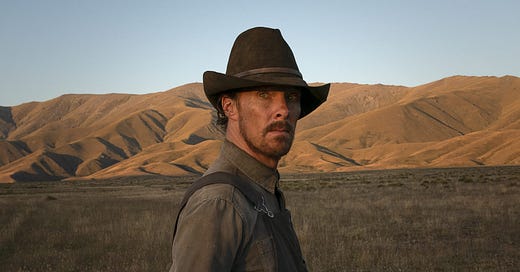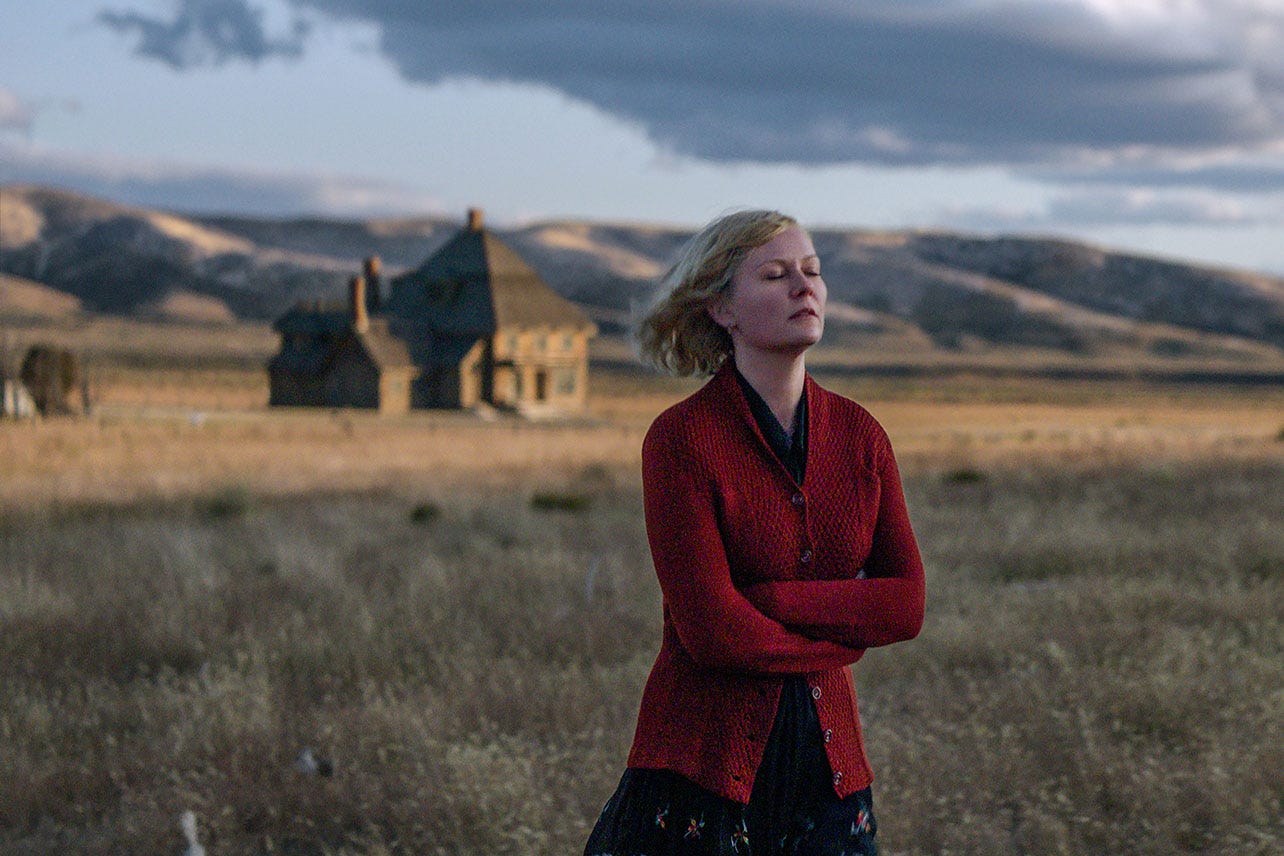The Power of the Dog: A Candid Work of Subversion
Jane Campion's Oscar-nominated film and how it treated its female character
"When my father passed, I wanted nothing more than my mother’s happiness. For what kind of man would I be if I did not help my mother? If I did not save her?”
—Peter Gordon, The Power of the Dog
With 12 Oscar nominations this year, Jane Campion's The Power of the Dog is a subversive tale that breathtakingly delves into the psyche of a man.
The Plot
Phil Burbank (Benedict Cumberbatch) is a revered cowboy who has earned his place as a trusted leader among his community. His education, character, and experience sets him on a pedestal no one can knock off. To add to his unwavering position of power is his machismo with which he ridicules and sneers at anyone who displays femininity, including women and his own brother, George Burbank, a soft-spoken, refined man who is forced to live in Phil's shadow, and is often seen by him as incapable and unmanly.
On a sunny afternoon, George, Phil and his gang make a stop at a restaurant to dine. The place is owned by Rose Gordon (Kirsten Dunst), a widowed woman with a teenage son, Peter Gordon, whom she cares for dearly.
Peter is a boy unafraid to be feminine. He makes paper roses for his mother who was once a florist. When Phil sees the paper flowers in the table’s vase and wonders what “little lady” made these, Peter tells him that it was he who crafted them. A string of ridicule ensues for Peter’s unmanly nature, and Rose removes the paper flowers after Peter burns one to light his cigar.
That night, as Rose laments over not being able to protect her son, George Gordon consoles her and helps her out with running the restaurant. The two fall in love and get married.
Following this, Rose sells her restaurant to move in with George and his brother. In the vast, empty plains along the mountains of Montana, and the silent summer atmosphere, an unspoken tension unravels between Rose and her brother-in-law Phil who considers her to be nothing more than a gold-digger.
With Phil's hostile masculine presence constantly unnerving her, Rose takes to alcohol for dealing with her nerves, slowly spiralling into anxiety and sickness. What will Peter, a son whose only solace and concern is his mother, do to protect Rose from Phil's grip while facing ridicule for his own femininity?
The Candidness in Campion’s Filmmaking
The Power of the Dog seems like a predictable story at first, but unravels as a surprising tale of wit, slyness and a film with brilliant character study. The preconceived notions of a character and their fate, especially that of Phil Burbank and Peter Gordon are twisted in a way one wouldn't expect.
Combined with mesmerizing cinematography and a cast that perfectly embodies the story's characters, the film is an art of subversive storytelling that isn't afraid to be unreserved.
Jane Campion doesn't depend on subtlety to show her intent, but she masters the frankness with which this tale is told. In one scene, Phil is having a conversation with Gordon about Rose where he says he could get himself a piece of ass without a marriage license. The next shot cuts to Phil cutting through the ass of a skinned carcass of a cow hanging from a hook. It's funny how on-the-nose it is, but is still likeable for being funny like that.
How the Film Treated its Female Character
The film's most focused female character was Rose. From leaving behind her independent source of income for love, to silently dealing with the aggressiveness of her brother-in-law, Rose is a typical female character who suppresses her thoughts and feelings for the sake of her child's future. As long as her son could have a good education, she is ready to be crumpled under the pressure of Phil's omniscient presence.
Rose is neither powerful nor confident to get herself out of a situation unless a man rescues her from it. She has her subtle ways of protests like when she sends her husband to ask Phil to wash himself before meeting some guests or decides to give away Phil's hides when he’s away. And Rose doesn't flinch when it comes to protecting her son, but she is still helpless in the face of men who want to see her lose.
On one hand, this can be seen as an accurate portrayal of how the lives of some women are, but on the other hand, I still cannot get over wishing she had a better character arc. What if her son isn't there to save the day? She would be as miserable as ever.
However, Rose is a woman of kindness. Her courage stems from love. She isn't afraid to step up for her son, she ran a restaurant to earn a living, she married George when she saw how caring and helpful he was. She wasn't naïve.
A scene which shows her true comfortable state is right after she marries George and the two of them are on a car drive. There's a moment when she asks him to stop the car and gets down, fixes them both a cup of tea, and then teaches him to do a little dance. This is the life she wished for, but it was threatened by Phil's passive-aggression.
Rose is a pitiable character, whose moments of control and self-worth shine through at times. But a little part of me still wishes she had a better arc. A part of me wishes to have seen Rose bloom in the harsh lands of men. A simple close-up to her face towards the end of the film could’ve sealed the deal for me, instead of the long shot of her kissing her husband.
Overall, The Power of the Dog is a great example of how a simple story can mesmerize you when it is treated in the hands of an exceptional filmmaker.
Watch The Power of the Dog on Netflix.








